#margaret tempest
Text


Little Grey Rabbit letter set.
22 notes
·
View notes
Text

Well, if nothing else I read a shocking number of B books this month. I felt very fortunate this month -- I've been listening to a lot of audiobooks lately because of general stress and a lack of free time, but I managed to settle into quite a few physical books over February. It's honestly been a bit of a relief to have the time and headspace to curl up with a book.
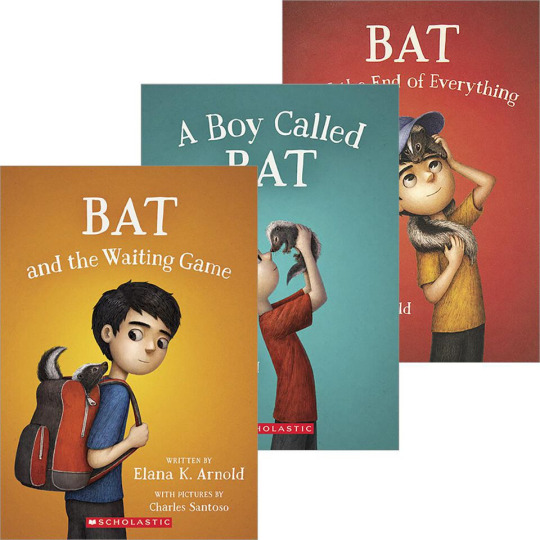
A Boy Called Bat / Bat and the Waiting Game / Bat and the End of Everything
I read this trilogy because I had heard some pretty positive reviews for it. The story is about an autistic boy called Bixby Alexander Tam, nicknamed Bat. He has the nickname for a few reasons besides for the acronym — Bat feels it’s appropriate because he also: loves animals, has very sensitive hearing like a bat, and will flap his hands like wings when he’s excited. The story starts when his mom, a vet, brings home an orphaned skunk kit that needs caring for and Bat falls in love with it. The trilogy extends over the rest of Bat’s school year, a budding new friendship, and how he helps raise the kit and tries to convince his mom that he doesn’t need to be released into the wild but instead would make a perfect pet.
I felt… lukewarm to it, honestly. I think my problem is I went into it with the wrong expectations. The way it had been described to me, I thought it would be one of those more “artsy” ““highbrow”” children’s novels but it really reads more like a pretty standard fare Child Animal Story. Which is fine! A standard animal story is appealing to kids, and having some autistic rep in a basic book instead of exclusively in more artsy stuff is great. It was just a bit of a disappointment after I heard it so hyped.
It did have some interesting parallels/symbolism, but over all the plot was rather meandering without any real upticks, and the language was fairly plain and uninteresting. And the ending fell completely flat. It felt like the few themes the book was clinging were just completely dropped in the final yard. I would totally recommend them to an elementary kid that wants a cute animal/school story, but that’s about it.

Ballet Shoes
This book I had a great time with. I’m reading a completely different novel that referenced back to this classic children’s novel and I ended up needing to detour to read this first so I could get the references. I’m glad I did! Normally I’d be put off by the title/aesthetic, because I’ve never been a kid into “ballerina stories” but I ended up really loving it. It made me think of similar books from the earlier 20th century, like A Little Princess or The Secret Garden or Anne of Green Gables, all of which I love.
Ballet Shoes is about a trio of adopted sister: Pauline, Petrova and Posy. Their guardian does their best to make ends meet and ensure the girls get an education, but the household funds are gradually dwindling and they’re soon struggling. Luck strikes though when they decided to let out rooms of their home for borders, and one ended up suggesting all three girls join a local ballet school — there they can train in dance, but can also start earning money at the age of twelve if they get cast in productions. The girls take to this training with varying degrees of enthusiasm, each one being a very unique, enjoyable character, and the book follows the different misadventures they have as they grow and enter the entertainment industry and continue to fight to make ends meet.
Despite how heavy that might sound, it was ultimately quite a charming, feel-good novel. It was perfect for a cosy blanket and a cup of tea.
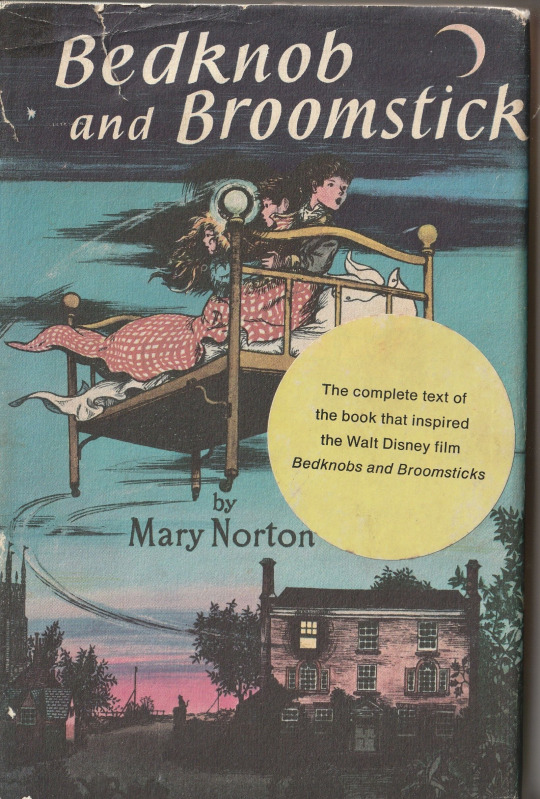
Bedknob and Broomstick
I had watched the movie a number of times growing up but never once read the novel, so I finally remedied that. Did you realize that what we know as Bed-Knob and Broomstick is actually a compilation of two separate books, The Magic Bed-Knob and Bonfires and Broomsticks? I hadn’t! And I have to say, I think I enjoyed the second story more than the first.
For those who haven’t heard of the story at all, it’s about three children who are sent to the country to stay with their aunt, and during their summer they end up meeting a neighbour called Miss Price. Miss Price is a rather regular, proper young woman, with the added detail that she’s learning to become a witch through correspondence classes. When the children promise not to reveal her secret, Miss Price gifts them an enchanted bed-knob, one that will take them anywhere in place or time they would like to travel. The first story is about the places they adventure too. The second is some time later, when they are able to visit Miss Price once again, and are horrified to discover that she has given up witchcraft for good. The kids however are determined to use the bed-knob once more, this time to venture back into the past.
In all honesty, I was rather neutral to the book, especially given how racist the first half is. I was happy to have read the classic but I wouldn’t go out of my way to read it again.
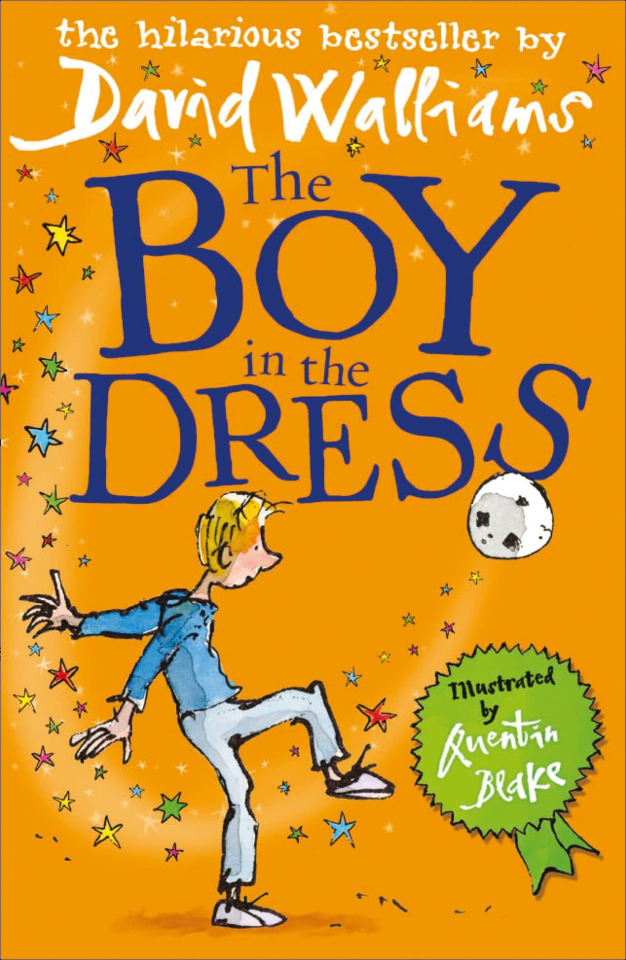
The Boy in the Dress
Now, caveat right at the top: this book isn’t explicitly queer. At no point does anyone come out as gay or trans. But I do consider it queer in that the entire narrative is an ongoing conversation about what the gender binary means, and how one’s own identity, passions, and presentation can challenge that, and how people respond to those challenges.
The story follows 12 year old Dennis who lives in a very ordinary, plain household with his older brother and father, who attends a very ordinary, plain school, in a very ordinary, plain town. He loves playing football (soccer), hanging out with his friend, and he also loves dresses. He loves how bright and colourful and joyful they can be, when his life feels very bland. Dennis struggles with figuring out how to explore the interest while contending with the other people in his life who clearly disapprove.
It’s a really earnest, heartwarming story.

Dogsbody
Ah, I love Diana Wynne Jones’ books, they’re always completely buckwild. This book was a ton of fun; as always with her books it really felt like I was reading something different and quirky and attention grabbing.
The main character of Dogsbody is Sirius — yes, the star. The story opens with him being put on trial, accused of killing another luminary and losing a powerful instrument called a Zoi. His sentence for this crime is to be stripped of his powers and cast down to earth, to spend one lifetime living in a humble, mortal form. If he can survive and find the Zoi within that lifetime, he will be welcomed back to the cosmos.
Sirius is reborn a regular puppy, one with no memories of his previous life or powers or mission. The novel follows him gradually growing up under the care of a young girl and her cruel family as he attempts to regain his memories and figure out how to find his lost Zoi.
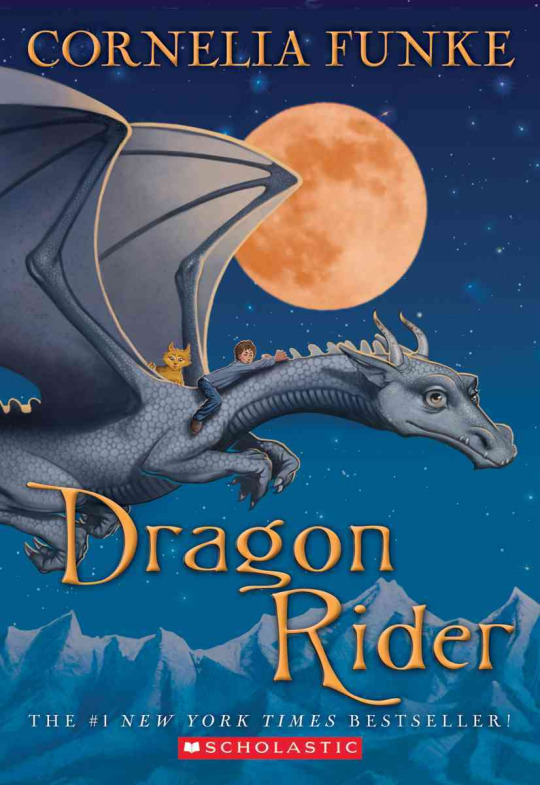
Dragon Rider
I haven’t read Dragon Rider since I was a kid, but I realized they had done a film of it… and man, that adaptation was not great. I remembered the book being better so I had to investigate. And I was right, the book is a really cute, enjoyable adventure with some charming characters.
The adventure starts when the hidden valley that Firedrake lives in is threatened by humans. The dragons have lived in small, hidden pockets for years, and now that it seems that the constant tide of humanity is pushing towards them they have no idea what to do. Only Firedrake takes up the challenge of venturing out of the valley in the search of a legendary place called the Rim of Heaven where dragons allegedly live in safety. Along with his dear friend the brownie Sorrel, and a young human they run into, they must plot of course that will take them across the globe, while avoiding an ancient, fearsome, dragon-hunting monster which has been without its preferred prey for centuries.

Grandpa’s Great Escape
I’ve been meaning to read David Walliams books for ages, ever since I saw them beginning to pop up in our local bookstore. I finally bought one on a whim, and wow, I was not disappointed. It reads exactly like a Roald Dahl novel, which is about the highest praise I can offer — I don’t think I’ve ever read anything that satisfies in the same way as Dahl before.
This novel follows Jack and his grandfather, a retired RAF pilot from WWII. His grandfather has become increasingly confused as the years progress, and often finds himself mixing up the present and his past glory days as a pilot; Jack is one of the few people who still finds it easy to talk to his grandfather because he is completely willing to meet him at his level, talk to him as if he really is still the Wing Commander. When his parents can no longer handle it though, they’re duped into send Jack’s grandpa to the wicked Twilight Towers. As the only one who can see how sinister the place really is, Jack is determined to save his grandfather.
It’s a truly hilarious story, since it’s written very much to read like a RAF pilot trying to escape from a Nazi concentration camp… except set in a nursing home! I can’t recommend this book enough, between the silly, heartfelt story, the occasional tragedy, and the fun illustrations, it’s such an addictive read.

I Think Our Son Is Gay v3
I read the first book of this series last month (whoops, I skipped 2… my library just happened to have the third in) and decided to try another. It’s a cute little series about a teenage boy experiencing his first crush. Though he hasn’t come out to his family yet, he’s a boy who seems incapable of lying, who has a face that gives him away easily, so his mother (the main POV character) is quite certain he’s gay and that he has a crush on his best friend. She is determined to be quietly supportive of her son until he’s ready to come out. The series is predominantly sweet and supportive little episodic stories, but it also layers in some of the everyday homophobia and microaggressions a gay teenager might experience in a homophobic society, even when people around him don’t know he’s gay. It’s a very worthwhile read.

Socks
This was a book that I read over and over in grade 2 and I had forgotten its name until just recently. I never read many Beverly Clearly books as a kid, since I preferred genre fiction over stories based around the real world / school, but I loved the silly story told from the pet cat's point of view.
The story is about Socks and the perfect family he’s adopted into… perfect until a new baby comes around and suddenly Socks is competing for attention.
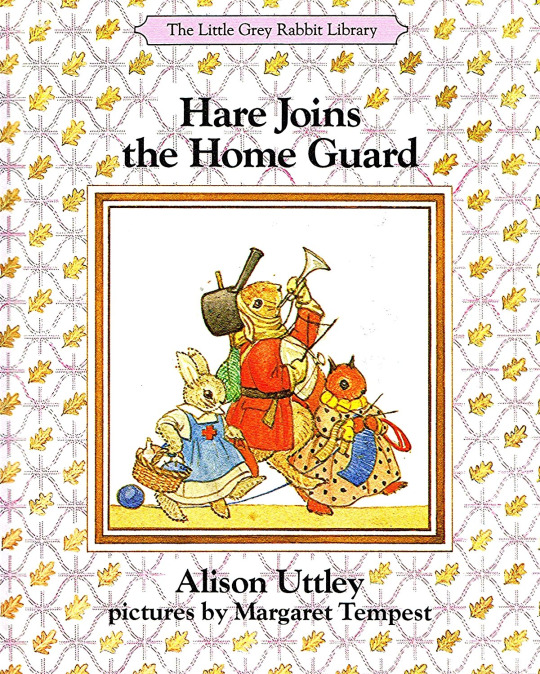
The Squirrel, the Hare and the Little Grey Rabbit/ Hare Joins the Home Guard
I mentioned in my review about Ballet Shoes that I read it because another novel I’m reading referenced it: same for this book! The Squirrel, the Hare, and the Little Grey Rabbit is one of the picture books the main character of the other book often alludes to so I decided I needed to read it as well. This book was a cute, standard fare little picture book from that era. It’s about the very gentle, virtuous Grey Rabbit, and her rather bossier, lazier housemates, the Hare and the Squirrel. It was cute and the art was lovely, though I can’t say much beyond that.
I also read Hare Joins the Home Guard mostly because I was stunned and baffled by a Cute Animal Story explicitly jumping into WWII… though I suppose it makes sense! It came out in 1942 and it’s a pretty gentle way of holding a mirror up to some of the things children were certainly hearing about and experiencing in their real lives. In this, the various animals join the “home guard” in different roles (such as taking up arms, becoming a Red Cross nurse, digging shelters to protect children, or knitting for the “troops”) in order to fight off invading weasels. I would say it was also fairly “basic” were it not for the fact that it was hilarious to see this next to titles like Little Grey Rabbit Makes Lace. How often do you see Cute Lil Animals preparing gas masks for their chemical warfare plans?
#book review#book reviews#chatter#little grey rabbit#alison uttley#margaret tempest#wwii era#wwii novels#david walliams#grandpa's great escape#the boy in the dress#beverly cleary#i think our son is gay#queer lit#queer books#cornelia funke#dragon rider#diana wynne jones#dogsbody#bedknobs and broomsticks#ballet shoes#noel streatfeild
13 notes
·
View notes
Text

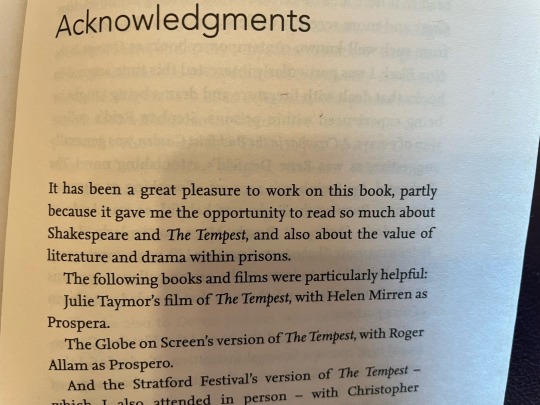
Reading Margaret Atwood’s “Hag-seed” only to find she mentions Roger Allam in her acknowledgements.
He’s everywhere I look.
“The Globe on Screen’s version of The Tempest, with Roger Allam as Prospero.”
Well, who wouldn’t be inspired?
10 notes
·
View notes
Text
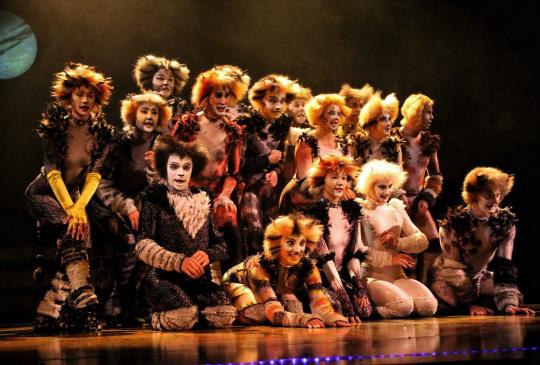
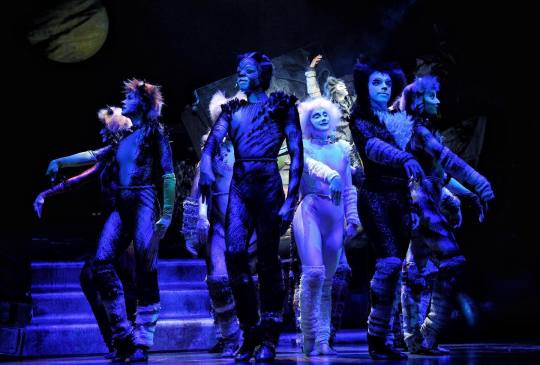
Solemnical cats! (Except for Brittany Tooms-Peel's Rumpelteazer.)
Oasis cast 11, second half of May 2022.
Megan Dillon is covering Demeter, Robyn Tempest is Grizabella, Ryan Ocampo is Munkustrap, Joey Kummert is Mistoffelees, Natalie Margaret Moore is Bombalurina, Benjamin Stacey is Mungojerrie, Sarah-Anne Mclaren is Victoria, Joshua Donald is Tumblebrutus, and Lexi Andra Luzon is Coricopat.
#oasis#oasis 11#s: invitation to the jellicle ball#s: naming of cats#brittany tooms peel#megan dillon#robyn tempest#ryan ocampo#joey kummert#natalie margaret moore#benjamin stacy#sarah anne mclaren#joshua donald#lexi andra luzon#c: ensemble
15 notes
·
View notes
Text
Writeblr intro
Last Updated: Mar 2024
So, I realised I hadn't actually written one of these, and I had to fix it!
Name: Magpie, or Shelle, or Michelle.
Pronouns: she/her or xe/xer/xis.
Who: both a writer and an editor!
The Writing: I’ve been publishing since 2011, and I have a bunch of free and paid anthologies I’ve organized, but these are my most important/favourite works.
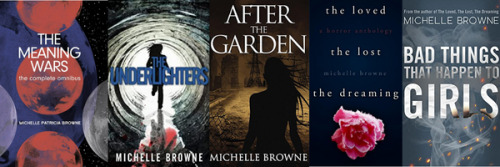
Except for The Meaning Wars series, all of my books are set in Canada!
The Meaning Wars (complete; And The Stars Will Sing, The Stolen: Two Short Stories, The Meaning Wars, Poe’s Outlaws, A Jade’s Trick, The Meaning Wars Complete Omnibus)
Similar to: Becky Chambers’ A Long Way to a Small, Angry Planet and Ruthanna Emrys’ A Half-Built Garden
Vibes: Space opera! Found family! Mature (30s) protagonists! Best friends! Sapphic and queer m/f romance elements! Friendly space raptors! Space pirates! A beach episode! Antifascism! Colonization (and inequality issues)! Fighting stuff with democracy and direct action!
The Underlighters (Book 1 of The Nightmare Cycle; Book 2, Monsters and Fools, is complete and in edits. Book 3, The Foundling City, is a current WIP!)
Similar to: Jean DuPrau’s The City of Ember, Neil Gaiman’s Neverwhere, the Fallout series
Vibes: Coming of age/new adult themes. Spooky monsters. Post-apocalyptic. The importance and warmth of community. Friendship. Struggling with teen problems. Polyamory. Nightmares. Mental health issues. Trauma. Hope. Recycling.
After The Garden (Book 1 of the Memory Bearers Saga; Book 2, Within the Tempest, is also one of my WIPs)
Similar to: Margaret Atwood’s Oryx and Crake, The Wachowski sisters’ Sense-8, the Fallout series
Vibes: Found family. Gentle romance. Polyamory (m/f/m). Superpowers without superheroes. Sinister cults and religious extremism. Reincarnation. An alternate future. Adorable giant spiders. Silk-weaving and fiber arts. Post-collapse societal reorganization and politics.
The Loved, The Lost, The Dreaming: A Horror Anthology includes an alternate-ending version of The Underlighters, the novella A Shot of Vodka, and a dozen or so genre-crossing short stories. All of them have spooky elements.
Similar to: Neil Gaiman’s Smoke and Mirrors, Roald Dahl’s Skin and Other Stories (this is not an endorsement of antisemite Roald Dahl; I am antifascist)
Vibes: Underground living. Spooky dolls. Abandoned houses. Queerness. Sinister fey. Nightmares. Lovecraftian eeriness. Here be monsters.
Bad Things That Happen To Girls (Book 1 of the Memory Bearers Saga; Book 2, Within the Tempest, is also one of my WIPs) Possibly my most underrated work, this New Adultish story is a standalone novella about trauma and what happens when life breaks down.
Similar to: Emily Danforth’sThe Miseducation of Cameron Post and Miriam Toews’ A Complicated Kindness
Vibes: Broken family. Abusive mother. Being queer in a small city. Religious trauma. Forbidden cross-cultural love. Teen heartbreak. Coming-of-age. Sisters.
The Hell series (Unpublished WIPs; Dark as Hell, Uncharted Hell, Hope in Hell)
Similar to: Assassin’s Creed: Black Flag, Andrej Sapkowski’s The Witcher series
Vibes: Grumpy/sunshine romance! Mature protagonists! Queer f/m romance! Thriller elements! Immortal pirate! Marxist/anti-billionaire politics—with a billionaire protag! Lovecraftian ocean horror! Historical fantasy elements! Lots and lots of boat stuff!
Prairie Weather Trilogy (Unpublished but complete, in submission; Chinook Phase, Tornado Warning, Brushfire)
Similar to: Douglas Couplands’ Jpod,Nick Sagan’s Idlewild trilogy (without the sci fi stuff), Love Actually, Heartstoppers
Vibes: Aggressively Canadian! Found family! Cozy academia! University! Set in the early 2010s! Queer romance! Ensemble cast! Aggressively queer, diverse, and inclusive! Coming-of-Age/New Adult issues! Friendship! Drama! Sex work-positivity!
The Editing: I've been a professional freelance editor since 2013, with Top-Rated status on Upwork (a freelancing website) and several hundred books under my belt. (I don't know how many things I've worked on at this point. I've lost count!) Primarily into sci fi, fantasy, horror, and literature (and associated subgenres); enthusiastic about #ownvoices and all kinds of diversity/marginalised representation in fiction.
You don’t have to go through Upwork unless you want to; DM me if you’re looking for an editor who’s knowledgeable, enthusiastic, and gentle. I’m also budget-friendly!

Age: in my 30s.
Queer?: yes. Also poly! Happily married to two people; also have a girlfriend. Not looking for more partners.
Disabled?: yes.
Languages: English mostly, but some conversational Spanish (rusty), scraps of French, tiny bits of German and Irish. All my writing is in English, though.
Location: Southern Alberta, Canada. (Texas + Kansas + Colorado = Alberta, more or less.)
Other hobbies: Knitting, making jewelry, playing Dungeons and Dragons (and other tabletop games), singing, reading (obviously), learning stuff; playing cello, clarinet, and violin
Interests: Jewelry, gems, metalworking, fiber arts, queer issues and social justice, environmentalism, drinking quite a lot of tea (usually black; I like an assam, Ceylon, or breakfast blends, though Golden Snail absolutely slaps when I’m in the mood for it, and I love Earl Grey Cream as well)
Other internet profiles: *Website * Mailing list * Magpie Editing * Amazon * Tumblr * Mastodon *Facebook * Medium * Twitter * OG Blog* Instagram * Paypal.me * Ko-fi
#writeblr#writers of tumblr#published#indie author#self published#science fiction#sf#sci fi#horror#anthology#queer#lgbtq#bi#sapphic#indie#editor#scifimagpie#about me#intro#intro post#who is this person#writer#writing#author#authors#publishing
56 notes
·
View notes
Text
THIS DAY IN GAY HISTORY
based on: The White Crane Institute's 'Gay Wisdom', Gay Birthdays, Gay For Today, Famous GLBT, glbt-Gay Encylopedia, Today in Gay History, Wikipedia, and more … April 14

April 14, 1962 Description: People mailing their taxes.


1600 – Italy: Philosopher Tomasso Campanella (1568-639) is jailed, spending twenty-seven years imprisoned in Naples in various fortresses. He was a Dominican friar, Italian philosopher, theologian, astrologer, and poet.
He is overheard saying to his cellmate: "O Father Pietro, why don't you do something so that we may sleep together, and we may get pleasure?" Pietro replied "I wish I could, and I'd even bribe the gaolers with ten ducats. But to you, my heart, I would like to give twenty kisses every hour."
Campanella was finally released from prison in 1626, through Pope Urban VIII, who personally interceded on his behalf with Philip IV of Spain. Taken to Rome and held for a time by the Holy Office, Campanella was restored to full liberty in 1629. He lived for five years in Rome, where he was Urban's advisor in astrological matters.

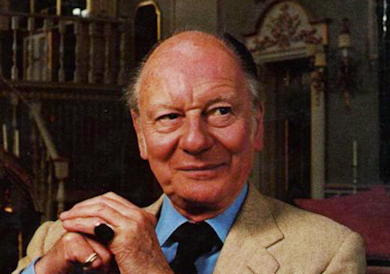
1904 – Born: Sir John Gielgud (d.2000), long acknowledged as one of the greatest British actors of the twentieth century. A highly versatile performer, he played leading and character roles on both stage and screen, in every genre from classical tragedy to low comedy. While in many ways reticent about his sexuality, his experiences illustrate the significant changes in public attitude towards homosexuality over the decades.
Arthur John Gielgud was born in London on April 14, 1904 to a family with theatrical backgrounds on both sides. His father was the son of a Lithuanian actress, and, through his mother, he was the great-nephew of Dame Ellen Terry, the most renowned British actress of the nineteenth century.
Gielgud began acting in his teens, joining the Old Vic theater company in 1921, and making his film debut in the silent picture Who Is That Man? (1923). Soon thereafter, Gielgud became Noël Coward's understudy, eventually taking over the lead roles in Coward's play The Vortex (1924) and Margaret Kennedy's The Constant Nymph (1924). Other successes followed quickly, as Gielgud began to play major Shakespearean roles at the Old Vic, beginning with Romeo, and, before he was thirty, the more mature lead roles in Richard II, The Tempest, Macbeth, Hamlet, and King Lear.

Gielgud as Hamlet
During this time, he began his first major relationship. Actor John Perry lived with him until their separation in the early 1940s.
By the 1930s, Gielgud was a box-office idol—a rather unlikely one, given his bulbous nose and unprepossessing figure; indeed, his detractors thought his Romeo "feminine." His great gifts were his cat-like mobility and, most notably, his expressive voice, which fellow actor Sir Alec Guinness described as being "like a silver trumpet muffled in silk."
Gielgud also became a respected stage director, launching his own distinguished company in 1937 at the Queen's Theatre. He directed and often performed in productions of Shakespeare and such classics as School for Scandal, Three Sisters, and The Importance of Being Earnest. In 1953, Gielgud was named in Queen Elizabeth's Coronation Honors List as the recipient of a rather belated knighthood. That this honor came about at all was a result of two of his colleagues, Sir Laurence Olivier and Sir Ralph Richardson, pleading with Prime Minister Winston Churchill to remedy the grievous oversight.
As Gielgud's homosexuality was generally known if not publicly acknowledged in a time when sexual acts between men were still a criminal offense in Britain (and remained so until 1967), the government had been reluctant to bestow its approval on him. Given the controversy over his knighthood, it was cruelly ironic that within months of receiving the honor, Gielgud was involved in an embarrassing incident that might have been fatally damaging to his career.
During the early 1950s, British legal authorities conducted a veritable persecution of gay men that resulted in criminal charges against a number of prominent figures. Gielgud was arrested outside a public lavatory in Chelsea for "importuning for an immoral purpose," and the press conducted a vitriolic campaign against him. Gielgud nonetheless received a standing ovation upon his next stage appearance, and his arrest is thought to have been instrumental in starting the process of decriminalization. (The incident did not, moreover, prevent the Queen from granting him two further distinctions, the Companion of Honour [1977] and the Order of Merit [1996].) But, having been so deeply humiliated, Sir John never spoke publicly about the matter or his sexuality again, and he was banned from entering the United States for the next four years.
After World War II, Gielgud's career shifted, as he began to appear with greater frequency in the character roles for which he is now best remembered. With the advent of the "Angry Young Men" of the 1950s, Gielgud's acting style was greatly out of fashion on the British stage, and, accordingly, he appeared more frequently in motion pictures. He acted in more than 130 films in his long career, the greater portion of which were made between the 1960s and the 1980s; and in 1982 he received the Academy Award for Best Supporting Actor for his portrayal of the sardonic butler in Arthur.
Finding it increasingly difficult to commit lengthy dialogue to memory, Gielgud retired from the stage in 1988, but continued to perform in films, nearly until the end of his life. At the age of eighty-six, he had his first nude scene in Prospero's Books (1991), and he subsequently appeared in Shine (1996), The Portrait of a Lady (1996), and Elizabeth (1998).
In 1999, he was deeply bereaved by the death of his partner Martin Hensler, with whom he had lived for nearly forty years. Within months, on May 21, 2000, Gielgud himself passed away quietly at his home in Aylesbury, Buckinghamshire, at age ninety-six.


1906 – Elmyr de Hory (born Elemér Albert Hoffmann; d.1976) was a Hungarian-born painter and art forger, who is said to have sold over a thousand art forgeries to reputable art galleries all over the world. His forgeries garnered celebrity from a Clifford Irving book, Fake (1969); a documentary essay film by Orson Welles, F for Fake (1974); and a biography by Mark Forgy, The Forger's Apprentice: Life with the World's Most Notorious Artist (2012).
De Hory claimed that he was born into an aristocratic family, that his father was an Austro-Hungarian ambassador and that his mother came from a family of bankers. However, subsequent investigation has suggested that de Hory's childhood was, more likely, of a middle-class variety; he was born Elemér Albert Hoffmann. (An acquaintance, Fernand Legros, said that de Hory was born in Budapest (Hungary) 14 April 1905, but that de Hory would change the date to 1914 to appear younger.) Both his parents were Jewish. His father's occupation was listed as "wholesaler of handcrafted goods." His parents did not divorce when he was sixteen, as he had asserted in the Clifford Irving biography.
At the outbreak of the Second World War, de Hory was imprisoned in a German concentration camp for being both a Jew and a homosexual. (While his homosexuality was proven over time, investigation into his past has shown the likelihood that he was at one time christened as a Calvinist. Such an ostensible conversion did not stop the Nazi government from targeting people who were born Jewish for extermination.) He was severely beaten and was transferred to a Berlin prison hospital, from which he escaped. He returned to Hungary, and it was there, he said, that he learned that his parents had been killed and their estate confiscated. However, according to Mark Forgy's account, both de Hory's mother and brother were listed as Holocaust survivors.
On arriving in Paris after the war, de Hory attempted to make an honest living as an artist, but soon discovered that he had an uncanny ability to copy the styles of noted painters. He began to sell his Picasso pastiches to art galleries around Paris, claiming that he was a displaced Hungarian aristocrat and his offerings were what remained from his family's art collection or else that he had acquired them directly from the artist, whom he had known during his years in Paris.
In 1959, suffering from depression, he attempted suicide by overdosing on sleeping pills. A friend rescued him and called an ambulance. His stomach was pumped, and after a stay in the hospital de Hory convalesced in New York City, helped by an enterprising young man, Fernand Legros. Legros' account of his dealings with de Hory differs substantially from de Hory's own. He portrays de Hory as an aggressive and persistent con man, who suckers Legros into the belief that he is a needy impoverished aristocrat deserving of Legros's charity, whereas in reality he is a person wanted by Interpol under a multitude of different aliases and convicted of a variety of crimes, forgery and fraud being not the least of them; de Horys is object of pursuits, convictions and expulsions from France, Switzerland, Italy, Federal Germany, Great Britain, from Mexico, from the United States, from Canada, for false check writing without funds, check forgery, forgery carrying a false name, theft, receiver and purveyor of stolen goods, and embezzlement.
In de Hory's account, Legros accompanied de Hory back to Miami where he continued to regain his health. When he imprudently took Legros into his confidence, the other man quickly recognized an opportunity and importuned the artist to let him sell his work in exchange for a 40% cut of the profits, with Legros assuming all the risks inherent in the sale of forgeries.
With Legros, de Hory again toured the United States. In time, Legros demanded his cut be increased to 50%, when in reality Legros was already keeping much of the profit. On one of these trips Legros met Réal Lessard, a French-Canadian who later became his lover. The two had a volatile relationship, and in late 1959 de Hory decided to leave the two and return to Europe.
In Paris, de Hory unexpectedly once more ran into Legros. De Hory revealed to him that some of his forgeries were still back in New York. According to de Hory, Legros devised a plan to steal the paintings and sell them, making a name for himself and his art gallery in the process. Later that year, de Hory's account continues, Legros persuaded de Hory to resume their partnership. Legros and Lessard would continue to sell de Hory's work and agreed to pay him a flat fee of $400 a month, enough to guarantee de Hory a comfortable and risk-free life in his newfound home, the Spanish Mediterranean island of Ibiza.
De Hory always denied that he had ever signed any of his forgeries with the name of the artist whom he was imitating. This is an important legal matter, since painting in the style of an artist is not a crime—only signing a painting with another artist's name makes it a forgery. This may be true, as Legros or Lessard may have signed the paintings with the false names.
In 1964, now 58 years old, de Hory began to tire of the forgery business, and soon his work began to suffer. Consequently, many art experts began noticing that the paintings they were receiving were forgeries. Some of the galleries examining de Hory's work alerted Interpol, and the police were soon on the trail of Legros and Lessard. Legros sent de Hory to Australia for a year to keep him out of the eye of the investigation.
De Hory continued to elude the police for some time but, tired of life in exile, decided to move back to Ibiza to accept his fate. In August 1968, a Spanish court convicted him of the crimes of homosexuality, showing no visible means of support, and consorting with criminals (Legros), sentencing him to two months in prison in Ibiza. He was never directly charged with forgery because the court could not prove that he had ever created any forgeries on Spanish soil. He was released in October 1968 and expelled from Ibiza for one year. During that time he resided in Torremolinos, Spain.
One year following his release, de Hory, by then a celebrity, returned to Ibiza. He sold his story to Clifford Irving, who wrote the biography Fake! The Story of Elmyr de Hory the Greatest Art Forger of Our Time. De Hory appeared in several television interviews and was featured with Irving in the Orson Welles documentary F for Fake (1973). In Welles's film, de Hory questioned what it was that made his forgeries inferior to the actual paintings created by the artists he imitated, particularly since they had fooled so many experts and were always appreciated when it was believed that they were genuine. In F for Fake, Welles also poses questions about the nature of the creative process, how trickery, illusion, and duplicity often prevail in the art world, and thus, in some respects, downplays the culpability of the art forger de Hory and outliers like him.
During the early 1970s, de Hory again decided to try his hand at painting, hoping to exploit his newfound fame: this time, he would sell his own, original work. While he had gained some recognition in the art world, he made little profit, and he soon learned that French authorities were attempting to extradite him to stand trial on fraud charges. This took quite some time, as Spain and France had no extradition treaty at that time.
On December 11, 1976, de Hory's live-in bodyguard and "companion" Mark Forgy informed him that the Spanish government had agreed to extradite de Hory to France. Shortly thereafter, de Hory took an overdose of sleeping pills, and asked Forgy to accept his decision and not intervene or prevent him from taking his life. However, Forgy later went for help to take de Hory to a local hospital, though en route he died in Forgy's arms. Clifford Irving has expressed doubts about de Hory's death, claiming that he may have faked his own suicide in order to escape extradition, but Forgy has dismissed this theory.


1912 – The RMS Titanic strikes an iceberg just before midnight on April 14th. By 2:20 AM, she broke apart and foundered, taking over one thousand three hundred people still aboard to their deaths. Just under two hours after the Titanic foundered, the Cunard liner RMS Carpathia arrived on the scene of the sinking, where she brought aboard an estimated 705 survivors. Among the known gay people who died on the Titanic were crew members second carpenter Michael Brice and Third Officer Sam Maxwell as well as Archibald Willingham Butt who served as an influential military aide to U.S. presidents Theodore Roosevelt and William Howard Taft.


1935 – Erich von Däniken is a controversial Swiss author best known for his claims about extraterrestrial influences on early human culture, in books such as Chariots of the Gods?, published in 1968. Von Däniken is one of the main figures responsible for popularizing the paleocontact and ancient astronaut hypotheses.
Von Däniken is a co-founder of the Archaeology, Astronautics and SETI Research Association (AAS RA). He developed a theme park called Mystery Park in Interlaken, Switzerland, which opened on May 23, 2003 and closed on November 19, 2006.
His 26 books have been translated into more than 20 languages, selling more than 60 million copies worldwide, and his documentary TV shows have been viewed around the world.
Von Däniken's run-ins with the law started at an early age. In the 1960s, Von Däniken worked in hotels and restaurants across Switzerland, and then he was convicted of fraud, serving a prison sentence for defrauding his boss at one hotel. In 1967, soon after Chariots of the Gods was published he was arrested and charged by Interpol with fraud and tax evasion for non-payment of US$14,000.00. On behalf of the prosecution, he was ordered by the Court to undergo psychological examinations, and labelled a homosexual, reflecting a time when being homosexual carried a negative stigma. During the investigation, authorities uncovered a large personal debt totaling about US$700,000. Von Däniken was found guilty of embezzlement, and he served more than three years in Swiss prisons. While in prison, he continued writing, and 'Return of the Gods' was subsequently published.


Dan Roos (L) with Lisa Kudrow & Dan Bucatinsky
1955 – Don Roos is an American screenwriter and film director. Roos was born in New York. He attended the University of Notre Dame in Indiana. After graduating, Roos moved to Los Angeles, where he pursued a career writing for television.
Roos began his writing career when he had a friend of his impersonate an agent and represent him; a phone call led to a job with playwright Mart Crowley (The Boys in the Band), who at the time was Executive Producer of Hart to Hart. Roos went on to write for The Colbys, Nightingales, and other TV shows, before his spec scripts led to feature film writing assignments. His first major film was 1991's Academy Award-nominated Love Field, an interracial drama starring Michelle Pfeiffer and Dennis Haysbert.
Roos' work as the writer of the film Single White Female has earned him a permanent space in Hollywood movie trivia, since that title has entered the lexicon in reference to the film's psychopathic lead character who begins to take on her roommate's identity.
Roos is well-known for his work writing strong and engaging female characters. Ironically, In a 1999 interview in The Advocate, Roos stated that prior to scripting Boys on the Side and The Opposite of Sex, "as a Hollywood screenwriter, I was used to disguising my gay characters as heterosexuals" because of homophobia in the film establishment. His use of an interracial attraction in Love Field, for example, was a way of talking about "a love that dare not speak its name." Roos explained that he used women to stand in for gay men dealing with emotional conflict because "men are still stuck in that ridiculous '50s attitude. They're never allowed to play real fear or any kind of weakness. Women get to play all those feelings." Roos won a Best First Feature Independent Spirit Award for The Opposite of Sex.
In 2000, Roos served as the executive producer of All Over the Guy (2001), a comedy about four friends—a gay couple and a straight one—on an often bumpy road to romance. The assignment gave him the opportunity to work with his life partner since the mid-1980s, writer and actor Dan Bucatinsky.
Roos has appeared at numerous glbtq film festivals, including three at his alma mater, Notre Dame, but he severed that connection after the 2006 event, prior to which the school's president, the Reverend John Jenkins, had condemned the name of the Queer Film Festival as one that would "celebrate and promote homosexual activity" in contravention of Catholic doctrine."I will never come back to Notre Dame again--ever," declared Roos. "When I come here, all I feel is hate. They don't want me here. They don't want me to have my daughter [in the same house] with my boyfriend. They think I will burn in hell. Would Anne Frank go back to Bergen-Belsen?"
Adopting a child in 2005 was a source of great joy for Roos and Bucatinsky. Roos supports a woman's right to choose abortion but was glad to find a woman who not only decided to carry through her pregnancy but also chose a gay couple as the adoptive parents for the child, who was born in Wisconsin. Roos and Bucatinsky were able to file an amended birth certificate in California, with both of their names listed as parents.


1987 – Mississippi creates a "Sex Offense Criminal History Record Information" program. It creates a state registry of convicted sex criminals, including for consensual sodomy. Employers are permitted to request information about employees from it.


10 notes
·
View notes
Text
I read 32 new books this year, and will probably finish the 33rd this evening! and on top of that, I reread at least 34 books that I can remember (Modern Faerie Tales/Darkest Part of the Forest/FOTA, The Hero and the Crown, Scorpio Races, Scholomance, P&P, most of the Wimsey books, most of L&C, Assassin's Apprentice, Ronan of Rin, THG), for a grand total of 67!
new book list under the cut, books I would recommend marked with an asterisk:
*Royal Assassin, Robin Hobb
Tempests and Slaughter, Tamora Pierce
The Ballad of Songbirds and Snakes, Suzanne Collins
*Classic Scrapes, James Acaster
*The Monsters We Defy, Leslye Penelope
*Lord Peter Views the Body, Dorothy Sayers
Arrows of the Queen, Mercedes Lackey
*A Shilling for Candles, Josephine Tey
*Busman’s Honeymoon, Dorothy Sayers
Queen of Blood, Sarah Beth Durst
Nine Liars, Maureen Johnson
*The Mysterious Affair at Styles, *Murder on the Links, Agatha Christie
Mistborn & The Well of Ascension, Hero of Ages, Brandon Sanderson
Jennifer the Damned, Karen Ullo
*Midnight for Charlie Bone, Jenny Nimmo
*The Stolen Heir, Holly Black
*The Outlaws Scarlett and Browne (Being an Account of Their Daring Exploits and Audacious Crimes), Jonathan Stroud
Vespertine, Margaret Rogerson
*Piranesi, Susanna Clarke
*The Screaming Staircase, *The Whispering Skull, *The Hollow Boy, *The Creeping Shadow, & *The Empty Grave, Jonathan Stroud
*Small Spaces, Katherine Arden
*Anne of Windy Poplars, L.M. Montgomery
*The Bodyguard, Katherine Center
*Woodwalker, *Ashes to Fire, & Creatures of Light, Emily B. Martin
11 notes
·
View notes
Text
FIRST SOCIALITE (HUSBAND): “I can’t read this thing!” (Tossing aside Truman Capote’s magazine excerpt from his forthcoming novel Answered Prayers.)
SECOND SOCIALITE (WIFE): “But darling, you must read all of it. If you don’t, we won’t have anything to talk to anybody about.”
The above exchange actually occurred, but as often happens with popular hot controversies, the principals prefer not to be identified, even after telling the tale on themselves. The social stakes are too high. Being on the wrong side in one of these tempests in a teabag could be fatal. What if Kitty Miller never invites you again … or “Swifty” Lazar hangs up on you … or the Bill Paleys hear you didn’t step over the line at what has now become the Smart Set’s own Alamo? Or what if Truman Capote prevails and comes out on top? What if he writes a sequel that tells even more?
Staying alive and well in society means never zigging when you should zag.
“Whoever gossips to you will gossip of you,” goes the old Spanish proverb, and this one came home to roost for the International Set’s crème de la crème with the publication in the November Esquire of Capote’s “La Côte Basque 1965” — the “tail” of the long-awaited “kite” called Answered Prayers that is the writer’s next major work of fiction.
Society’s sacred monsters at the top have been in a state of shock ever since. Never have you heard such gnashing of teeth, such cries for revenge, such shouts of betrayal and screams of outrage. Well, anyway, not since Marcel Proust flattered his way into the salons of the Faubourg St. Germain and then retired to a cork-lined room to create a masterpiece, recalling the details of the Baron de Montesquiou’s “preciosities” and rendering him into the “Baron de Charlus,” setting down the vivid details of a world of le gratin where the rich see only one another.
What did Capote write that so enraged so many? Oh, just everything he ever heard whispered, shouted, or bruited about — the same kind of stories that have been wafting among the fine French furniture crowd since Maury Paul first saw the Blue Book dining out on Thursday and coined the phrase “Cafe Society.”
“La Côte Basque 1965” is a 13,000-word story about a luncheon between “Lady Ina Coolbirth,” a 40-ish multiple divorcée on the rebound from an affair with a Rothschild, and the innocent narrator, “Jonesy,” at Henri Soule’s exclusive Manhattan restaurant. While drinking Champagne and eating a soufflé Furstenberg, “Lady Ina” gossips about the International Set, telling one “no-no” after another on one and all, including herself. Capote has peopled his story with real persons, using their real names as well as with a number of other real persons, using fake names. The most shocking of “Lady Ina’s” send-ups are the stories about Cole Porter putting the make on an Italian waiter called “Dixie,” the one about “the governor’s wife” and her sordid sexual put-down of the climbing Jewish tycoon “Sidney Dillon,” and the histoire of trashy “Ann Hopkins,” who tricked a blue blood into marriage, then murdered him after he got the goods on her and threatened divorce.
Other naughty things in the story are the opening dirty joke … the bad breath of Arturo (Lopez Wilshaw) … the duchess of Windsor never picking up a check … Maureen Stapleton’s nervous collapse … Carol Matthau’s dirty mouth … Princess Margaret’s dislike of “poufs” … Gloria Vanderbilt’s failure to recognize her first husband … Oona O’Neill fluffing off the boyish J.D. Salinger … Joe Kennedy having his way with an 18-year-old school chum of his daughter’s … “Sidney Dillon” and his womanizing and social climbing .. . “Cleo Dillon” loving only herself .. how the famous TV comic “Bobby Baxter” goes off with a hooker and his pushy wife, “Jane,” has the last laugh … the weird young movie cutie who marries the son, then the father, only to find herself divorced because of a German shepherd … Lee Radziwill coming off better looking than Jackie Kennedy, who resembles “a female impersonator” … the love affairs of “Lady Ina,” how much she needs a man, and her envy of the domestic bliss of two attractive lesbians who reside in Santa Fe, “the dyke capital of the United States.”
Capote insists that the gossipmongering central character, “Lady Ina Coolbirth,” is strictly an invention — but friends of Lady (“Slim”) Keith, Pamela Harriman, Carol Portago, and Fleur Cowles are all nevertheless incensed. “Well,” sniffs Truman, “let them all martyr and identify themselves if they like … let them hang from the cross claiming they’re hurt … those who want to say they are models, that’s up to them!”
Other characters in “LCB ’65” are so thinly disguised as to be seen through tissue paper clearly — among them “Ann Hopkins,” undoubtedly representing Mrs. William Woodward Jr., who killed herself on October 10, seven days before Esquire hit the stands, and “the governor’s wife,” said to be the late Marie Harriman.
Many other names were dropped, some in passing, some to devastating effect. John Hersey has said that “the final test of a work of art is not whether it has beauty, but whether it has power.” But try telling that to the friends of the late Cole Porter, or Maureen Stapleton, Elsie Woodward, Josh and Nedda Logan, Johnny Carson, “Babe” Paley and her powerful husband, Bill. (I remarked to Truman that I didn’t know that his now ex-friend Mr. Paley had ever been an “adviser to presidents,” as “Sidney Dillon” is described in the piece. Truman just grinned and said, “I didn’t either.”)
Everybody written about in “LCB ‘65” has been guessed and second-guessed at with little or no concession to Capote’s own thesis — that this is a fictionalized version of a world he knows very well.
For years Capote has been society’s adored and adorable resident intellect and court jester. In a world where parties are still often “given against someone” … where bitchery, snobbery, and hauteur are still prized right along with poise, manners, and money … where the merits of plastic surgeons are argued in the same way the religious used to argue theology — gossip has always been the great staple, the glue holding beleaguered life-styles and sinking social values together. But it’s one thing to tell the nastiest story in the world to all your 50 best friends; it’s another to see it set down in cold Century Expanded type.
Capote has always been the gossip’s gossip nonpareil. He has been leaving them laughing and quaffing blanc de blanc with the best of them, ever since he came of age as an enfant terrible pet of the rich after Other Voices, Other Rooms catapulted him to fame in 1948. He has sailed on their yachts, masterminded their love affairs, and been such a focal insider that his Black and White Ball for publisher Kay Graham is still remembered as one of society’s best parties.
When the gorgeous women of the world’s tycoons and power brokers sat down to spoon up soufflé with Capote, or when Truman tickled the risibilities of the powerful tycoons themselves with his outrageous tidbits and fascinating possibilities, he was always the brightest, most entertaining little imp imaginable. Oh yes, of course, he was — well, everyone knew, “queer.” But in such an amusing classy way — in the manner of the great Italian count who remonstrated with an English lord for snobbery, saying, “My dear fellow, when your ancestors were still painting themselves blue, mine were already homosexual!” You know, that sort of thing. And then, of course, didn’t that more or less make dear “Tru” all the more manageable and “safe”?
Society always thought it had something on Capote, in the same way the French le gratin had Proust’s desperate desire to belong, his suspected inversion, and his Jewishness on him. What’s more, society believed Truman to be a lightweight climber who aspired to stay in its good graces. (Snorts Truman, “Yes, they have always made that mistake about me! Why, if anybody was ever at the center of that world, it was me, so who is rejecting whom in this?” Summoning up an echo of Beau Brummell’s “In society stay for just as long as it takes to make an impression. After that — go!,” Truman continues: “I mean I can create any kind of social world I want, anywhere I want!”)
It seems simply never to have occurred to many people that the writer’s goddess might turn out to be not “Babe” Paley, but Truman’s own muse. He was, after all, so seductive, so naughty, so charming. He knew everything about everybody and — what’s more — had total recall. But now, the same people who listened so delightedly and told tales out of school find themselves hoist by their own windiness. There they are, splashed through the pages of Esquire like hollandaise that has missed the asparagus. God! And that ain’t all — there’s more to come. It is all going to be bound between hard covers into a book. A book!
Capote, meanwhile, is also a literary name. The almost universal acclaim for In Cold Blood lifted his reputation from that of a poetic mannerist into the pantheon of American belles lettres. So the Establishment world that reads and writes has also joined the hue and cry. The question whether Capote has indeed ruined his reputation by stooping to writing gossip, as opposed to whether he is only doing the same kind of work attempted by ether famous writers in the past, will be argued for a long time. There seems to be no such thing as an indifferent opinion of “LCB ’65.”
Feuds and furors flash and die in these media-mad days, but the roar over Capote’s roman á clef vignettes, observed and recorded in explicit detail, rages on. “LCB ’65” was a one-shot last November, but its reverberating ripples still lash both coasts.
(Capote yelps: “When I was in New York a few weeks ago everybody was falling all over themselves being nice to me. The machinations going on behind the back of the people who are in the book you wouldn’t believe. Most of the attackers are just pilot fish, trying to outdo one another in being vicious in their sycophancy. They all want to stay in my favor but maintain a great front of animosity.”)
Capote rushed back to California from New York to finish up another 30,000-word installment for May publication. The reaction to “LCB ‘65” inspired him to crank that up to 40,000 words, and now, he says the literary Establishment can sit around waiting for their turn. They are “on” next, and then there’ll be four more magazine assaults before Answered Prayers appears in hardcover.
Dissenters to what one social Don Quixote calls “Capote’s character assassination in the guise of art” have been pellucidly vocal: “Disgusting! It’s disgusting!” says society’s favorite extra man, real-estate investor Jerome Zipkin, shooting his immaculate French cuffs. “Truman is ruined. He will no longer be received socially anywhere. What’s more — those who receive him will no longer be received.”
Patrick O’Higgins, a writer and pal of Elsie Woodward — the mother-in-law of the late suicide, Ann Woodward — is himself one of the more exquisite tale-tellers of this same world, but he says: “Truman’s gone downhill. People think, ‘What a shame that a great talent should be reduced to writing gossip.’ Some people are really hurt because they’ve been kind to him. The Paleys were always so fond of him. But Elsie hasn’t been hurt. She didn’t even read the piece. She couldn’t care less. All she’ll say is ‘Je ne le connais pas!’ — isn’t that perfect?”
Columnist Jack O’Brian: “He knows what will sell in this market … he’s Jackie Susann with an education.”
Writer Wyatt Cooper, husband of Gloria Vanderbilt: “I hate talking when my feelings are negative. It isn’t constructive. I’m very fond of Truman. We used to have lunch, gossip, and it was fun. But lately it wasn’t. His viciousness ceased to make it fun. I even talked to him about it two years ago and he thanked me later for caring. I think this destroys all the things he has built up. He can’t really pretend to sneer at these people in the Jet Set. He worked too hard to be ‘in’ himself. Of course Gloria is offended! He made Carol Matthau come out tough and bright, but has Gloria looking vapid and dumb, in a very unfair way.”
Wyatt, who collaborated with Truman on a television project and has known him for years, continues in his “more in sorrow than in anger” vein: “I had always wanted Truman to write a truthful, non-idealized version of his painful and strange childhood as an outsider. It could have been great. But, you know, he has always had a love-hate for all these beautiful women he has been close to. His mother was an alcoholic and killed herself, and children of alcoholic mothers often end up attacking women. Truman would like to be glamorous and beautiful. He has often acted out fantasies of his own by telling his women friends how to act, who to have love affairs with, by manipulating them. Now he has his ultimate revenge, by making them ridiculous in print.”
Gloria Vanderbilt: “I have never seen it and have heard enough about it to know I don’t want to.”
Director Peter Glenville: “Ignoble, utterly ignoble!”
Esquire’s own media critic, Nora Ephron, who didn’t even like the mild version of reminiscence and revelation dished out by Brendan Gill in Here at The New Yorker: “There has always been a disparity between Capote’s fiction and the public personality, and now finally the two have come together and the public personality has won.”
William and “Babe” Paley are said to have now instructed their distinguished relatives to the effect that longtime pal Capote is persona non grata. And society’s favorite current story is of how Truman phoned Paley to ask what he thought of “LCB ’65.” Paley reportedly said, “Well, I started it and dropped off to sleep and when I woke up, they’d thrown it out.” (Zing!) When Capote protested that it was important that Paley read it, his old friend said wearily, “Truman, my wife [get that — “my wife,” not “your friend Babe”] is ill. I really haven’t time for it.” (Zowie!)
Truman found Wyatt Cooper unable to lunch with him when he was in New York over the holidays. (Cooper: “How could I — out of loyalty to Gloria. She says she’ll spit at him if she sees him.”) And Capote tells of being “cut” in Quo-Vadis by “a pitiful old society woman I often took about in Paris because I felt so sorry for her. No, don’t mention her name — it’s too sad.”
Mrs. Josh Logan was said to be so incensed she rushed across a crowded room to call Dotson Rader a “traitor” just because he also writes for Esquire. Nedda Logan informed Dotson that “that dirty little toad is never coming to my parties again.” (Some dialogue in “LCB ’65” refers to a Logan soirée: “‘How was it?’ — ‘Marvelous. If you have never been to a party before.’”)
Then there are the artful diplomats, like those two brilliants who’ve won fame straddling the fine line between practicing journalism and personal social acceptance among the Upper Crust — yes, fashion’s elegant Diana Vreeland, as well as that friend-of-the-“400” (sometimes now referred to derisively as “the 4,000”) Aileen (“Suzy”) Mehle. Told that Truman wanted to know why she had never written so much as a word in her syndicated society column about the only subject consuming “her crowd” since November, Suzy says: “Why? Why, there’s nothing for me to write. Truman’s done it all himself!”
And Mrs. Vreeland (rising high above the smoke of controversy just as a perfect hostess ignores a cigarette in the butter) dismisses the gaudy gossip, the sex scandals, the barely concealed identities, the homosexual revelations, the obscenity, the accusations of murder, and the matter of whether or not Capote has been “antisemitic,” “anti-gay,” and/or “disloyal” to friends and playmates, by putting one unerring finger on just what she considers important. “Yes — yes! The paragraph on the fresh vegetables and their size is really unique in the article. It’s a ravishing statement on the rich!”
Then there are the happy cynics like Emlyn Williams, distinguished Welsh actor-writer: “It was terrible, just awful, but it was so funny-riveting. I couldn’t help laughing.”
Then there are the defenders of Art. Rust Hills, a former fiction editor: “Fascinating stuff. Yes, of course, it’s okay he published it all. I think the artist does have a supreme right to use any material. Remember, life is short but art is long” … Painter David Gibbs: “Oh, don’t be absurd — all art is revolution! Why can’t people get that through their heads? This is brilliant stuff!” … Dotson Rader: “Marvelous, beautiful writing. It’s unimportant whether it’s true or not, since it is presented as fiction. Truman was always treated by these people as a kind of curiosity, expected to do his act. That was humiliation coming from people who had no qualifications other than being rich and social. Everybody in the world has been telling Truman their deepest confidences for years and he never said he wouldn’t use them.” … Geraldine Stutz, a woman of fastidious opinions: “It’s only a scandal to a small insular world; most people won’t know, and couldn’t care less about who might be who. What counts is that it is a wonderful piece of writing and an extraordinary re-creation of the tone and texture of those days in that world” … C. Z. Guest: “Everyone knows the man’s a professional and they told him those things anyway. He’s a dear friend of mine, but I wouldn’t discuss very private matters with him. I don’t even know who those fictional people are.”
Screenwriter Joel Schumacher, himself one of the Beautiful People: “If Truman had written a glittering vision of society, he’d have been termed an ass-kisser and his work a piece of crap by these same people. They always want some candy-ass lie written about themselves. This same world thinks it supports art and artists, but never understands that all a writer has is his experience. These people feel a good press is owed them. Why? In the fame-and-fortune game, whether it’s society, show business, big business, or politics, everybody lives on a plane of incomparable elitism, more money, more privilege than others. So why are they so shocked when somebody tells even a slightly unattractive truth about them?”
So, speaking of Beautiful People, the night before flying to Los Angeles to interview Capote I’m at Pearl’s with seven of them (or what I call semi-B.P.s, in that most of these work hard yet are still “social” enough to be written about and invited everywhere). After the lemon chicken has been served and Pearl has stopped clucking over us, the question goes: “What’s the one thing each of you would like to know from Capote?” They told me.
In this gathering, these youthful realists were amused and entertained by Capote’s daring. Most of them thought the writing was important. Only one of the seven Beauties completely disapproved of the piece. This Frito-colored hair and the women with was the most “social” — by whatever terms — person there; also the richest: a person who found “LCB ’65” “disgusting, unnecessary, mean, bitchy, Truman, like some Napoleon on spiteful, disloyal, and not even very well written.”
General laughter and the retort: “We’re sorry you can’t express yourself more definitely.” But such dissenting opinions were in the majority in the weeks to come. And always, the final clincher by Capote’s detractors was that this hideous, disloyal, tasteless thing the writer had done was bad enough in all its aspects, but its chief minuses were that it was “boring” and “wasn’t even well written.”
A society that habitually enfolds ennui and stinging cultural criticism around its shoulders like a familiar sable wrap could make such pronouncements and still not talk about anything else for two solid months.
Beverly Hills: La Côte Basque 1965 may have been a place, as Esquire noted, “where the plat du jour is seated somewhere in sight,” but La Scala, late 1975, is a place where Henri Soule probably wouldn’t have sent his enemy Harry Cohn. La Scala’s food is indifferent and its service based on benign neglect, yet it offers a carelessly cultivated charm and ambience of New York–in–California. Once inside, out of the relentless 73-degree sunshine, away from the gas-fed fire burning in the Beverly Hills Hotel lobby, away from the denim-tailored suntanned men with Frito-colored hair and the women with smart-looking Mark Cross–type bags that read “Bullshit,” a person can almost imagine being in New York.
Truman, like some Napoleon on Elba yearning for the East (I fancy), suggests we meet here. He has a day off from his acting role as the portly eccentric who lures facsimiles of the world’s most famous detectives to his mansion for sinister purposes in Neil Simon’s movie Murder by Death.
Enter reporter, tape recorder cocked, to find Truman talking with the departing screenwriter Peter Viertel. We slide into a booth and Truman, looking more and more like a diabolical version of the character actor Victor Moore, says nix to the recorder. “I’ll have more to say if you don’t use it.” I protest that I haven’t his fabled total recall. “Oh, you’ll do all right. You’ll see, you’ll get a better story this way.”
Already the interview is out of my hands into the subtle control of Capote. Only around Truman do I ever feel a real kinship with those glamorous women like C-Z, Jackie, Lee, Gloria, Carol, Slim, Babe, Kay, Fleur, Pamela, etc. He inspires a compelling intimacy. I begin to tell him everything. I spurt confidences, betray my instincts, and allow myself to be drawn out. For each question I ask, Truman asks two. “Seductive” is how one longtime friend described Capote, and she is right. I cling to the edge of the table to keep it from turning completely.
Then he orders a double Russian vodka with no ice and a tall orange juice on the side. Oh well, that makes me feel better. If he’s going to drink like that, I’ll be okay. (When the interview ends, two double vodkas, a half-bottle of red wine, and four J&Bs on the rocks later, Truman is as fit as ever and I am still in his power.)
Truman answers the questions put by Pearl’s diners. He punctuates his softly drawled, easily imitated, and widely recognized vocal mannerism with bursts of irrepressible laughter. And some amazed and genuine outrage. He begins most of his sentences with a drawn-out “W-e-e-e-l-l-l…”
WHY DID HE DO IT? WHY GO QUITE SO FAR? asked the retailer.
“Why did I do it? Why? I have lived a life of observation. I’ve been working on this book for years, collecting. Anybody who mixes with a certain kind of writer ought to realize they’re in danger. [Chuckle.] I don’t feel I betrayed anybody. This is a mere nothing, a drop in the bucket. To think what I could have done in that chapter. My whole point was to prove gossip can be literature. I’ve been seriously writing this for three and a half years. I told everybody what I was doing. I discussed it on TV. Why has it come as such a great big surprise?”
IS THERE REALLY MORE COMING, OR IS THIS ALL? THEY SAY YOU CAN’T FINISH THE BOOK, asked the fashion arbiter.
“This thing was only a chapter. My God, what will happen when ‘Unspoiled Monsters’ comes out? [Don’t you like that title?] I’ve never before heard it suggested that this wasn’t part of a whole book. Even my ‘Mojave,’ published in Esquire before this, was part of Answered Prayers, though we didn’t publicize it as such. ‘La Côte Basque 1965’ is certainly no short story. Of course it’s a book! [Exasperation.] Lord, I have a lot to say, baby! I haven’t even begun to say it, though the book is 80 percent written.”
IS IT TRUE YOU ARE DYING OF CANCER? asked the art dealer.
“Irving Mansfield likes to go around telling everybody I’m dying of cancer, but I’m well now. Oh, that reminds me of a story.”
Truman cocks his platinum head so I get a good view of his flat baby-pink ears, which seem to have come in a child’s size and never grown.
“When Jackie Susann died, the Times called me for a quote. I was reminded of a judge who once ruled against Father Divine in some property dispute. Later the judge dropped dead of a heart attack and when they asked Father Divine to comment, he said, ‘I hated to do it, but …’ “
Capote explodes with roars of laughter that rumble up out of his ample belly into a series of hah-hah-hahs. “So I just told the Times, ‘I hated to do it, but …’”
DID YOU WRITE THIS JUST TO MAKE MONEY AND TO SOCK AWAY SOMETHING FOR A LOVER, AS THEY SAY? asked the producer’s wife.
“I have never in my life done anything just for money. I’ve never had any reason to. Why would I need money? My God, I made over $3 million from In Cold Blood and I haven’t spent it. I sure haven’t made any money out of ‘La Côte Basque 1965.’ That’s absolutely cracky! You know you don’t make money from magazines.
“As for my personal life, I don’t care what anyone says or writes about me personally. I have been a public exhibit all my life. So let them go ahead and make me a monster. I was a beautiful little boy, you know, and everybody had me — men, women, dogs, and fire hydrants. I did it with everybody. I didn’t slow down until I was 19, and then I became very circumspect. But everybody knows where everybody else is sexually. There are no secrets, and that’s why I don’t understand the shocked response to ‘La Côte Basque 1965.’ What is all this business? Are these people living in some other medieval century? I’d never sue anyone for anything, but I’ve been lied about my whole life. I’m just surprised they don’t hire a hit man.”
We stop to order. Truman has steak sliced thin as prosciutto, special mayonnaise, fettuccine Alfredo, and Brie. He is emphatic that he won’t be driven out of New York or sell his U.N. Plaza apartment. (“No, no. that’s not so.”) Nor has he bought a house in Topanga Canyon. (“I guess they think that because that’s where the Manson family lived and I’m a monster, too.”) I notice a slight tremor to Truman’s tiny hands as he lifts his glass and feel a pang for his strain.
WERE YOU TAKING REVENGE FOR ALL THOSE YEARS IN SOCIETY, LIKE A PET DWARF KICKING THE ROYALS IN THE SHIN AT LAST? asked the WWD biggie.
“I didn’t mean anything vengeful, not even remotely. And I’m disappointed in these people, with all their pretensions for reading, art, theater, and culture that they’re so stupid and can’t see it as a work of art. This book is a serious work of art — if you don’t see it as that, then you don’t see it as anything. I’ve always done good things. Would I actually sit down and write about something like that as a joke, as revenge?”
I ask, “But didn’t it really occur to you that you’d be called a traitor and disloyal for publishing this specific kind of work, using people’s names?”
Truman sighs: “Well, it is true nobody likes what you write about them. Even those I was sympathetic to in In Cold Blood didn’t like themselves in print. Loyalty wasn’t the question, but on the other hand, I don’t care. I really don’t. If that’s the mentality — tant pis … I haven’t lost a single friend I’d want to keep in any event. These people saying these things weren’t friends of mine to begin with. Nedda Logan has always hated me, ever since I published that Brando piece in The New Yorker. What do the Logans have to do with anything, just because they once gave a party for Princess Margaret, who everyone knows is a terrible bore!”
IS IT TRUE ESQUIRE LAWYERS SHOWED THE “ANN HOPKINS” PART TO ANN WOODWARD FOR LEGAL CLEARANCE AND, RECOGNIZING HERSELF, SHE KILLED HERSELF? asked the designer.
“The most vicious thing about all this is that story! It’s absolutely untrue that Esquire showed her the copy. That’s ridiculous. Of course nobody showed it to her, as it would have been tantamount to admitting it was about her. I never let anybody read it in toto, and that’s why it was impossible for her to have seen or heard of it. The manuscript was kept in a bank vault. I was very careful with it; sometimes I let a few people read part of it with me sitting there. The new portion, ‘Unspoiled Monsters,’ I’ve never shown to anybody. This book wanders in all directions. It’s not just about the ‘Côte Basque’ people, and my God, of course I’m not taking out after Babe Paley in the next part. She isn’t even mentioned. How do these things get started? The book is really about ‘Kate McCloud.’ And nobody but me knows who she is, and nobody is going to know.”
I tell Truman that Elsie Woodward herself does not feel Ann committed suicide for any reason having to do with him. He says, “You see …. “
DON’T YOU CARE THAT ALL THESE PEOPLE ARE GOING TO CLOSE THEIR DOORS TO YOU? asked the play producer.
“Well, in the first place, I don’t think all these people will. I maintain the people who are really mad are the ones left out. Jean vanden Heuvel said, ‘I hope it isn’t true I’m not going to be in by name. “La Côte Basque” was delicious and I hereby propose myself for another section.’
“Look, I’m not using Proust as a model because what I’m doing is in the latter half of the 20th century as an American. But if someone like Proust were here now and an American, he’d be writing about this world. People say the language is filthy. I think that’s the way people talk and think now — exactly. I think it’s beautifully written. This thing about me never being invited again just shows such an ignorance of human nature that I can’t believe it. People don’t understand how their own minds work. No matter what happens, you have to respect somebody because he is an artist, if you have any pretensions to culture. There’s a fantastic ingratitude in America toward its artists. I mean, you do marvelous things and they just …
“Well, France is loyal to its artists, England to its artists, even Russia to its artists [chuckle], when they are dead. No other country treats its creative people like we do. Here they wait for you to fail. They love it. If people think I’m just a bitch, then I surely am 100 percent misunderstood. I consider myself a fine artist. I drove down here from working in British Columbia to start work on the movie and found the world had exploded. This place has been in the same uproar as New York.”
I say that maybe people in Hollywood are afraid they’ll be next.
Truman laughs. “Oh, they’ll get theirs!”
He turns serious: “Look, my life has been dominated by my own levels of taste in art, especially the art of narrative prose writing, wherein my particular art lies. I have never compromised that. I may have compromised other things in my life, personally, emotionally, or whatnot, but never that. This book, this whole thing, has been the ultimate of my art. You have to be true to your work. I’ve always said there’s no such thing as writing down. Writers always do the best they can.”
We go out into the sunshine. I take a good look at Truman and am infected perhaps by his own line describing Henri Soulé as “pink and glazed as a marzipan pig.” We walk toward the Beverly Wilshire while I think only in food clichés. I note Truman’s new butter-colored moccasins … his apricot-yogurt sweater … his Champagne lick of hair … the strawberry-colored heels of his tiny French carroty hands … his pale raspberry-tinted sunglasses … his soft Cardin hat with its gingerbread texture. l’m relieved to see that he is wearing an ordinary unappetizing pair of trousers that make him look as if he has been hit in the ass with a shovel.
Truman carries his current overweight bulge before him like some defrocked Santa Claus. He gives several autographs en route. He tries to buy a denim vest covered with pockets, discovers that an expensive camera comes with it, and shrugs, “They should give it to me.” At the hotel we fall into the El Padrino bar and Truman asks for a telephone. Disturbed by reports of Diana Vreeland’s displeasure, he dials her direct.
He calls her “darling,” “angel,” “precious one,” and tells her twice that he loves her. He hangs up triumphant and exclaims: “She says it’s the only important and interesting thing she has ever read about the rich!”
Burbank, Stage 15: I am watching Truman “act.” He stands on a step ladder reading Murder by Death lines in a singularly hideous dining-room set. Peter Sellers, Elsa Lanchester, and Timmy Coco play the scene with him. As far as one can see, Capote makes no effort to “act” but simply plays himself. When the heavy chandelier falls, smashing the table and almost causing serious injuries, Capote quips: “The ghosts of Gore Vidal and of Jackie Susann, no doubt.”
In his mobile dressing room, I ask about this acting bit: “Oh, I just thought it would be fun to do something different and I really liked the script. It’s going to be a good movie. I probably won’t act again. It was just for a change from working on the book, and I knew I didn’t have time to take a vacation. How am I as an actor? [Chuckles.] Let’s see, just say, ‘What Billie Holiday is to jazz … what Mae West is to tits … what Gucci is to loafers … what Schlumberger is to enamel bracelets … what Cartier is to tank watches … what Guerlain is to perfume … what Roederer is to Champagne … what Chekhov is to the short story … what Seconal is to sleeping pills … what King Kong is to penises, Truman Capote is to the great god Thespis!”
Truman is suddenly struck by an idea. “My agent Mr. Irving Lazar has given several parties of late and didn’t invite me. So maybe you’re right. Maybe I am a social outcast. Tell you what — call him up and ask about it!”
I’m reluctant, but Truman pays no attention to me. He gets Lazar’s phone number, he dials, and hands me the telephone. I give my message to the secretary, who says “Swifty” will call back. When I hang up, Truman is exasperated. “No, that’s not what I want you to say.” He re-coaches me in my lines. Before Lazar can return the call, Truman is called to the set. When the call comes through I tell Lazar that his client is now a social outcast and ask if this applies in Hollywood, since Truman has not been invited to Lazar’s parties.
Lazar says, grimly, “I wouldn’t have any comment about that.”
Floundering, I say, “You wouldn’t have any comment?”
Lazar: “No.”
I stumble, “Okay, well, I’ll tell Mr. Capote what you said.”
Lazar’s voice rises. “I didn’t tell you to tell Mr. Capote anything.”
“Yes, I know,” I reply, weakly, “and I will tell him that you say you have no comment.”
Lazar screams: “I don’t want you to tell Mr. Capote I said anything. Dammit, I knew I shouldn’t have taken this call!” (Slam.)
Truman loves it. He roars over having discomfited the agent of Richard M. Nixon. Two weeks later he calls New York to ask what people are saying now. I sense that he is anxious. He speaks bitterly of what he calls “the ‘walkers’ … my vociferous critics … what do they have to do with me … with my work?”
Soon it comes out that now the Paleys, the Whitneys, Gloria Vanderbilt, Mike and Jan Cowles, others who were indeed real friends, have drawn the line against Truman. Unlike the Baron de Montesquiou writing to Proust for reassurance that he is not the model for “Baron de Charlus,” Lady Keith does not get in touch with Capote at all. No, she has gone on a trip to the South Pacific with — the Irving Lazars.
Where does all this leave our hero? “Well, I won’t retire to my cork-lined room yet,” says Truman. “I’m just going to a Palm Springs spa to take off 20 pounds before a college lecture tour. Then I’ll drop the other shoe.”
I remind him that nobody can really judge a literary work for 50 years. “This won’t even be dated in 50 years!” says Truman with a bulldog tenacity.
Then I tell him the story of how Gertrude Stein, with all her artistic pretensions, didn’t like the portrait Picasso painted of her and made the classic hick comment: “But it doesn’t look like me!”
Picasso then said, “But it will!”
Truman applauds. He says, “You know. I’m beginning to think what’s happening now is better than the book!”
7 notes
·
View notes
Text

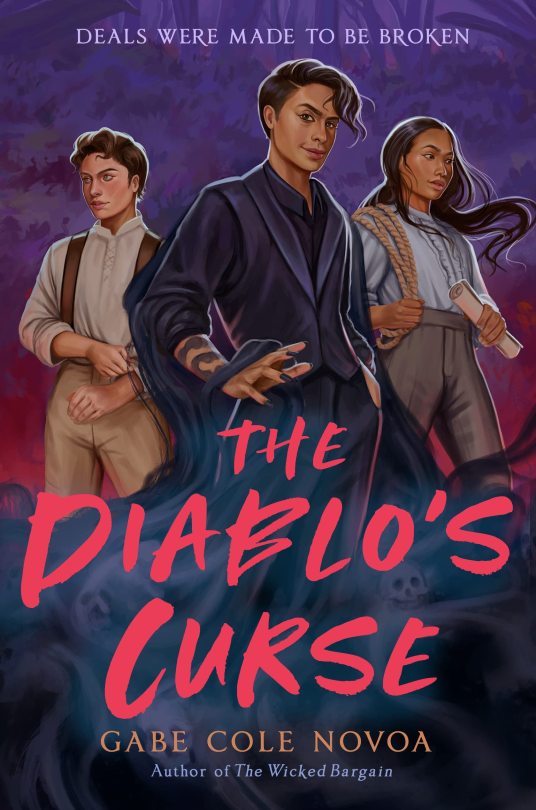

New Releases for the Week of February 20, 2024
I'm interested in all of the new releases this week--especially A Tempest of Tea--since tea is in my cup every day. It's another to add to our list of books featuring tea. Along with the vampire and tearoom book, we have a contemporary story and another fantasy with demons and curses. It looks like a good week to read.
Conditions of a Heart by Bethany Mangle
Margaret K. McElderry Books
Brynn Kwan is desperate for her high school persona to be real. That Brynn is head of the yearbook committee, the favorite for prom queen, and definitely not crumbling from a secret disability that’s rapidly wearing her down. If no one knows the truth about her condition, Brynn doesn’t have to worry about the pitying looks or accusations of being a faker that already destroyed her childhood friendships. She’s even willing to let go of her four-year relationship with her first love, Oliver, rather than reveal that a necessary surgery was the reason she ignored his existence for the entire summer.
But after Brynn tries to break up a fight at a pep rally and winds up barred from all her clubs and senior prom, she has nothing left to prop up her illusion of being just like everyone else. During a week-long suspension from school, she realizes that she doesn’t quite recognize the face in the mirror—and it’s not because of her black eye from the fight. With a healthy sister who simply doesn’t understand and a confused ex-boyfriend who won’t just take a hint and go away like a normal human being, Brynn begins to wonder if it’s possible to reinvent her world by being the person she thought no one herself.
The Diablo’s Curse by Gabe Cole Novoa
Random House Books for Young Readers
From the author of The Wicked Bargain comes a high-stakes race to defeat a curse designed to kill about a teen demon who wants to be human, a boy cursed to die young, and the murderous island destined to bury them both.
Dami is a demon determined to cancel every deal they’ve ever made in order to tether their soul to earth and become human again. There’s just one person standing in their Silas. An irresistibly (and stubborn) cute boy cursed to die young, except for the deal with Dami that is keeping him alive. If they cancel the deal, Silas is dead. Unless… they can destroy the curse that has plagued Silas’s family for generations. But to do so, Dami and Silas are going to have to work together. That is, if the curse doesn’t kill them first. . . .
A Tempest of Tea (Blood and Tea #1) by Hafsah Faizal
Farrar, Straus and Giroux
On the streets of White Roaring, Arthie Casimir is a criminal mastermind and collector of secrets. Her prestigious tearoom transforms into an illegal bloodhouse by dark, catering to the vampires feared by society. But when her establishment is threatened, Arthie is forced to strike an unlikely deal with an alluring adversary to save it—and she can’t do the job alone.
Calling on some of the city’s most skilled outcasts, Arthie hatches a plan to infiltrate the dark and glittering vampire society known as the Athereum. But not everyone in her ragtag crew is on her side, and as the truth behind the heist unfolds, Arthie finds herself in the midst of a conspiracy that will threaten the world as she knows it.
From the New York Times–bestselling author of We Hunt the Flame comes the first book in a hotly-anticipated fantasy duology teeming with romance, revenge, and an orphan girl willing to do whatever it takes to save her self-made kingdom. Dark, action-packed, and swoonworthy, this is Hafsah Faizal better than ever.
6 notes
·
View notes
Text
rec me retellings / inspired-bys of The Tempest?
On my list already: Hag-Seed by Margaret Atwood, The Boatman's Daughter by Andy Davidson, Ghosts by John Banville
I'm not sure how closely connected the latter two are to the Tempest, tbh, I'm drawing this list based on not much info
15 notes
·
View notes
Text
SAT literature list:
Louisa May Alcott, Little Women
Maya Angelou, I Know Why the Caged Bird Sings
Jane Austen, Pride and Prejudice
Francis Bok, Escape from Slavery
Ray Bradbury, Fahrenheit 451
Charlotte Brontë, Jane Eyre
Anthony Burgess, A Clockwork Orange
Paulo Coelho, The Alchemist
James F. Cooper, The Last of the Mohicans
Daniel Defoe, Robinson Crusoe
Charles Dickens,
— A Tale of Two Cities
— David Copperfield
— Great Expectations
— Hard Times
— Oliver Twist
Arthur Conan Doyle, The Adventures of Sherlock Holmes
Alexandre Dumas, The Count of Monte Cristo
George Eliot, Silas Marner
William Golding, Lord of the Flies
Hermann Hesse, Siddhartha
Victor Hugo, Les Miserables
Aldous Huxley, Brave New World
Ken Kesey, One Flew Over the Cuckoo’s Nest
Sue Monk Kidd, The Secret Life of Bees
John Knowles, A Separate Peace
William Goldman, The Princess Bride
John H. Griffen, Black Like Me
John Hersey, Hiroshima
S.E. Hinton, The Outsiders
John Krakauer, Into the Wild
Harper Lee, To Kill a Mockingbird
Lois Lowry, The Giver
Yann Martell, The Life of Pi
Frank McCourt, Angela’s Ashes
Arthur Miller, The Crucible
George Orwell
— Animal Farm
— 1984
Reginald Rose, Twelve Angry Men
Edmond Rostand, Cyrano de Bergerac
J.D. Salinger, Catcher in the Rye
William Shakespeare
— Julius Caesar
— The Merchant of Venice
— Romeo and Juliet
— The Taming of the Shrew
— The Tempest
— Twelfth Night
Mary Shelley, Frankenstein
Betty Smith, A Tree Grows in Brooklyn
John Steinbeck, The Pearl
Bram Stoker, Dracula
J.R.R. Tolkien, The Hobbit
Mark Twain, The Prince and the Pauper
Jules Verne, 20,000 Leagues Under the Sea
John Wyndham, The Chrysalids
Paul Zindel, The Pigman
Margaret Atwood, The Handmaid’s Tale
Mark Bowden, Blackhawk Down
Emily Brontë, Wuthering Heights
Joseph Conrad, Heart of Darkness
Dante, Inferno
Barbara Ehrenreich, Nickel and Dimed
William Faulkner
— As I Lay Dying
— The Sound and the Fury
F. Scott Fitzgerald, The Great Gatsby
Thomas Hardy, Tess of the d’Urbervilles
Ernest Hemingway, The Sun Also Rises
Joseph Heller, Catch-22
Hendry James
— The Portrait of a Lady
— The Wings of the Dove
Sebastian Junger, A Perfect Storm
Sara Lawrence Lightfoot, Balm in Gilead
Ken Kesey, Sometimes a Great Nation
Niccolo Machiavelli
— The Prince
— Discourses on Livy
Gabriel Garcia Marquez, Love in the Time of Cholera
One Hundred Years of Solitude
Herman Melville, Moby Dick
Toni Morrison, The Bluest Eye
Alan Paton, Cry, the Beloved Country
Robert M. Pirsig, Zen and the Art of Motorcycle Maintenance
Sylvia Plath, The Bell Jar
Ayn Rand
— Anthem
— The Fountainhead
Erich M. Ramarque, All Quiet on the Western Front
Eric Schlosser, Fast Food Nation
William Shakespeare
— Hamlet
— King Lear
— Macbeth
John Steinbeck
— The Acts of King Arthur and His Noble Knights
— The Grapes of Wrath
— Of Mice and Men
Amy Tan, The Joy Luck Club
J.R.R. Tolkien, The Fellowship of the Ring
Alice Walker, The Color Purple
Edith Wharton, The Age of Innocence
T.H. White, The Once and Future King
Oscar Wilde, The Picture of Dorian Gray
Evelyn Waugh, Brideshead Revisited
Richard Wright, Black Boy
Virginia Woolf
— Mrs. Dalloway
— To the Lighthouse
Read.
28 notes
·
View notes
Text
Dark Academia Names
Here is a collection of names that give off the feeling of a library on a rainy day. Next to the names will be M, F, or X depending on the gender it's most commonly associated with.

Abilene - F
Agnes - F
Amadeus - M
Annalise - F
Aurelius - M
Benedict - M
Beryl - X
Blanche - F
Blythe - F
Brittain - F
Catherine - F
Celine - F
Charlie - X
Christopher - M
Claire - F
Corvid - X
Cyrus - M
David - M
Deborah - F
Edith - F
Esther - F
Ezra - M
Florence - X, M
Genevieve - F
George - M
Gwendolyn - F
Harper - X, F
Hemlock - X
Imogen - F
Isaiah - M
Josephine - F
Julius - M
Kate - F
London - F
Louise - F
Luther - M
Margaret - F
Milan - X
Minerva - F
Neville - M
Norman - F
Ochre - X
Octavia - F
Oliver - M
Ophelia - F
Percival - M
Persephone - F
Phoebe - F
Quincy - M
Romulus - M
Ruth - F
Samuel - M
Sombre - X
Tempest - X
Theodore - M
Ursula - F
Valerie - F
Vincent - M
Weston - M
Wren - X
Xavier - M
Yarrow - X
Zephyr - X
#name ideas#name suggestions#name help#names#neutral names#fem names#masc names#character names#oc names#dark academia
3 notes
·
View notes
Text
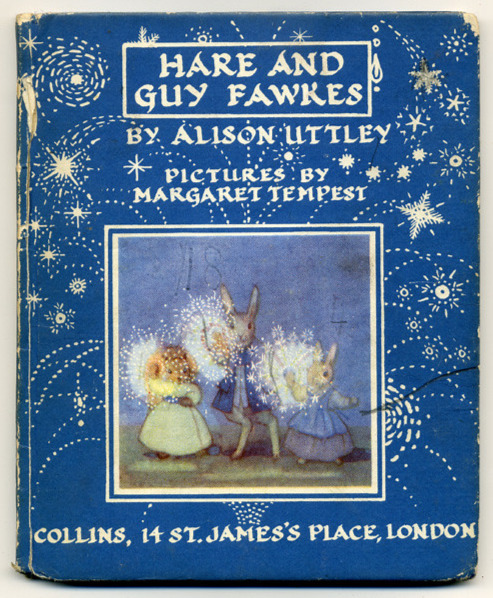

Hare and Guy Fawkes - Alison Uttley & Margaret Tempest (1956)
6 notes
·
View notes
Text

Little Grey Rabbit's Christmas by Alison Uttley, Pictures by Margaret Tempest, William Collins, Sons & Co. Ltd., 1940❄️
4 notes
·
View notes
Text
Books Read in July:
All the Weight of Our Dreams: On Living Racialized Autism: I had tried to read this book and bounced off it a few times for personal reasons that had nothing to do with the content of the book, because someone who knew I was getting annoyed about being treated like the Disabled Person who Talked About Disability Things because I was Disabled gave it to me because we'd recently had a conversation about my Autism situation, and it was in a gift-giving situation where the other people getting presents got like. Books about skills and history and other intellectual stuff, and I got. The Disabled Book about Disability for the Disabled Person. Which turned me off of it for a while. I also have mild personal beef with one of the editors. I'm glad I finally made myself read it. There are a couple of good essays in it. Unfortunately, like all anthologies, it's very hit or miss, and this one, sadly, was more miss for me. Part of it, I think, is that the vast majority of the essays focused on the contributors' bad experiences growing up and in school with social alienation and peer and adult harassment. There's definitely a time and a place for these kinds of narratives! It's important to shine a light on the unique experiences that autistic children of color have, and the unique struggles they face. However, a lot of these essays felt more like I was reading someone's therapy journal or tumblr post than like. An essay in a published anthology, and, because the focus was so heavy on the growing up/school experience, I felt like I didn't get any real sense of the lives, joys, struggles, frustrations, etc of Autistic adults of color, beyond the few who talked about being mothers of also-autistic children. And personally, I'm so tired of all the focus being on the pre-22 experience and existence! Also, I understand the logic behind the like... everyone welcome, come as you are approach that a lot of disability justice types have adopted in terms of contributions for published works and public shows, but I disagree with it. I think the lack of editorial eye, rigor, and curation makes us look childish, sloppy, and less-than, and in doing so creates a shanda fur di goyim. And like. Idk. Maybe that's reactionary of me? But the other Autism anthology I've read, Loud Hands, had, I thought, a wonderful balance between scholarly articles, very well written personal essays, more lay confessional type things, and pieces that wouldn't be considered for other types of publications, but nevertheless in context were moving, insightful, and delightful. Like I said, there were a couple good essays, and I think if I'd read it when I was a good deal younger I would have gotten more out of it, but overall, not the book I was hoping for.
Hagseed, Margaret Atwood: A very fun book! The narrative voice was just the right side of cynically arch. It's maybe the first like. "Non-Theater People (or self-conscious theater-people) Write About Theater" book that I didn't feel was making fun of theater and like. Grotesquely exaggerating things on purpose to make theater look ridiculous. It captured the puffed-up silly self-importance of Serious Theater Types while also understanding that they really are brilliant artists, and that brilliant artistry sometimes means doing out-there things that don't always pan out. So that was nice. I thought it worked very well as a story based on the Tempest. My only criticisms are that, at times, I thought the commitment of sticking to the plot of Tempest hemmed it in a little, and that, while I know she said she did a lot of research, I question Atwood's cynicism and assumptions around the inmates' condoning of Caliban's attempted rape of Miranda. In my experience with an admittedly narrow subset of the types of guys who wind up in minimum and medium security prisons, there's a Type who is very attached to a like. Working-class chivalry that justifies his particular brand of misogyny by vocally condemning things like violent rape and wife-beating. So that rang, as I said, a little cynical. Otherwise, incredibly fun read.
Memorial, Bryan Washington: Not a bad book, and I'd be interested to read his short stories, but not for me. I thought he very effectively captured an inured depression that thinks of itself as merely clear-eyed incredibly well. I loved the way Houston felt like a character in its own right. I thought it was an unsentimental and quietly heartbreaking portrait of what happens in the aftermath of a family breaking apart, and of a kind of cold, cynical, detached mode of pre-emptively cutting oneself off from emotions, experiences, and connections that can develop in environments that alternate between cold repression and explosive violence. I also thought it did a good job of portraying a couple who are mostly together anymore out of habit and fear of abandonment/loneliness/being unmoored, but who have different levels of understanding around this, and I liked the way it ended for Mike and Ben. That felt organic, earned, and satisfyingly unresolved. What didn't work for me was the extreme sparseness of the prose. The author avoided adverbs, adjectives, and interiority to an extent that I found disorienting and confusing. Reading the conversations between characters in person felt no different than reading their conversations over text. Because of this, I found it hard to understand the reactions they had to each other. I would be reading a conversaton as closed and hostile, and then everyone would start laughing companionably, or I'd think the conversation was a happy, kind of joking one, and then someone burst into rage or tears. It was kind of like when I meet a new person and haven't developed a baseline for their body language, moods, facial expressions, tones, etc, and so I am never quite sure what they're feeling in a conversation, but taken to such an extreme. I found this style compelling in Yiyun Li's Where Reasons End because of the conceit of that book, but it didn't work for me in this one. Often there would be a conversation of "he said '[neutral sounding] words,' i said '[neutral sounding] words.' we both understood that what we'd said was a step too far. i left to get away from that nastiness." And like. I don't get what happened! Maybe I am stupid, maybe Houston-southern is like. More advanced than Western NC or Eastern VA southern. But it was like they were speaking in a code I didn't have the information to crack. I don't think that makes the book bad, but it does make it not for me.
My Journey to Appalachia: A Year at the Folk School, Ellie Lambert Wilson: So I am not reviewing this like usual because my reason for reading this is I know Ellie Wilson. I would go to singing and dancing nights at the Folk School as a little kid. It was kind of cool getting to read the history of where I grew up and people I know, or people I know's grandparents. Is it like. A great memoir with wonderful insight into the Human Condition? Absolutely not. But I did enjoy seeing old pictures of Keith House and reading about the great-aunt of the neighbor I got a Beagle puppy from when I was a kid.
Eileen, Otessa Moshfegh: I love that there now exists a corollary of Dostoyevsky's Underground Man but this time it's a nasty little rat girl. A lot of the narrator's neuroses around her body were pretty familiar to me, as were her neuroses around the conviction that she was Uniquely Evil when she was just like. Depressed, miserable, and undernourished, and outwardly was just a vaguely off-putting but perfectly normal and straight-laced person. I loved the twists. I loved the way the author blended repulsion with sympathy, for the main character, for her horrible alcoholic father, and for the mother of the juvenile inmate. I wouldn't say I enjoyed how gross the book was, but I did appreciate it, especially the way the narrator's repulsion and obsession with sex led to her describing all body functions and all little indignities of the flesh in this half-grotesque, quasi-erotic way. I very much enjoyed this book but it is very much not for everyone.
The Penelopiad, Margaret Atwood: Frustrating. The poetry and more experimental or theatrical prose sections dealing with the 12 maids hanged by Odysseus and Telemachus were fantastic. However, the Penelope sections were not my cup of tea. I find her decision to use the conceit of Penelope telling this story from Hades after having been dead for a couple thousand years, as a way to allow her a narrative voice most comparable to an embittered, cynical, middle aged, upper-middle-class suburban wife who didn't divorce her cheating husband but really should have, boring and lazy. I don't think we gain anything by remaking Penelope in Carmela Soprano's image. I also didn't appreciate how the author used this conceit to make Penelope relatably cynical and arch about things from ancient sources that modern readers find slightly ridiculous, like the feasting and the focus on material treasure. I found the choice to imply that the adventures described in the Odyssey were fish stories, and a convenient cover for the wayward husband whoring and drinking his way across the Aegean, obnoxious. I tend to find people who pick some atrocity out of the corner of a well-worn myth or legend and demand that it be given its due, not glossed or excused or swept aside to focus on "important" things, compelling and interesting. So I very much liked her doing that with the 12 hanged maids, a footnote, and an atrocity. I don't care for it when people try to make a mythical or legendary woman "more" "interesting" by deciding that she "must" have "secretly" had "something more" going on. And in this case I found that drive on the author's part to be in unproductive tension with the demands that the maids be acknowledged as full human beings with just as much right to exist and speak as Odysseus, and therefore just as necessary to mourn.
Company of Moths, Michael Palmer: I loved it, but I have nothing intelligent to say about it. Wish I was better at reading poetry, though.
6 notes
·
View notes
Note
Kyahhh I just wanna say thank you for the love on my recent art but aLSO!! For writing such wonderful stories!!! Ive been readin summa yer stuff over on ao3 and omggg.... your language is just SO beautiful. The urge suddenly struck me though to reach out and ask perhaps where you take inspiration from and if you maybe have any book recommendations/what your favs are haha cuz dang! Your writing style is just so elegant, it feels very.... hmm, almost classical i might say? And I really love it so i was just curious ^_^ Thanks and cheers!! ♡
AAaaaaa of course!!! You deserve all the praise srsly I love your colors and style sooo much. Crocodile's faces are just legendary 😭
Hmmm for inspiration, that's a tough question for me bc I've really been influenced by so many (often random) things. I actually do read a lot of classic stuff tho lmao so I'll start by listing a few of those out
The ones that come to mind immediately are Shakespeare and Homer. Especially Tempest, Othello and the Illiad. I also adore Paradise Lost, Dante's Inferno and East of Eden.
For modern titles, recently I loved the dark whimsical prose in Mona Awad's Bunny and Heather O'Neill's Lullabies for Little Criminals. And the experimental story-telling in Margaret Atwood's The Blind Assassin and Otessa Moshfegh's My year of Rest and Relaxation.
There's probably tons of other books I can't recall atm, but yea I would absolutely 200 percent recommend any of the above.
Thank you sm for checking out my stories too and your kind words 💕 it always means the world whenever someone tells me they enjoyed them 🥰
9 notes
·
View notes